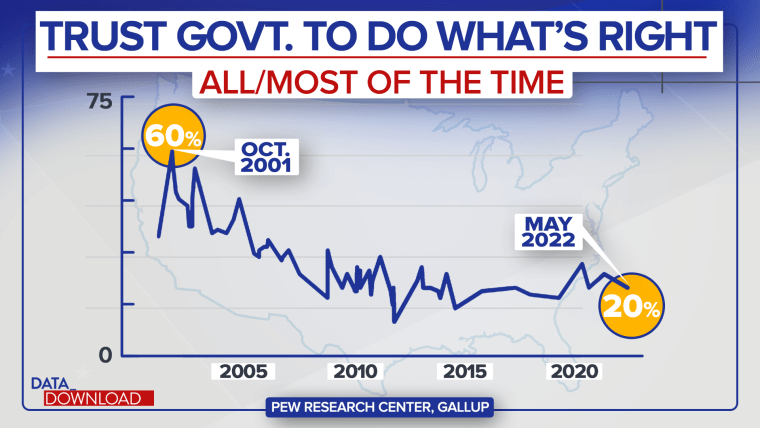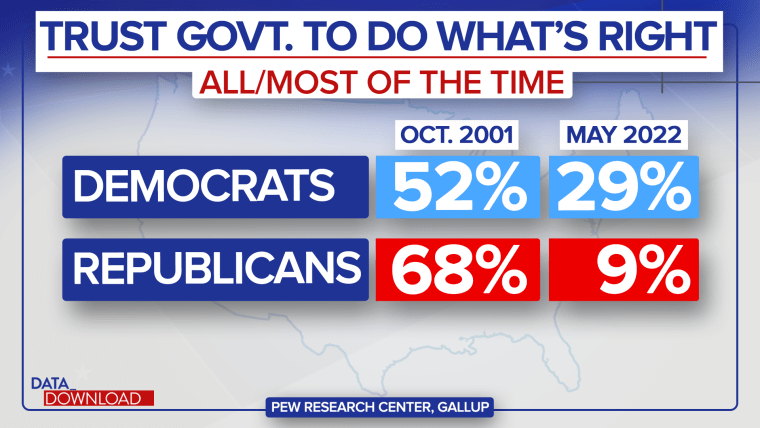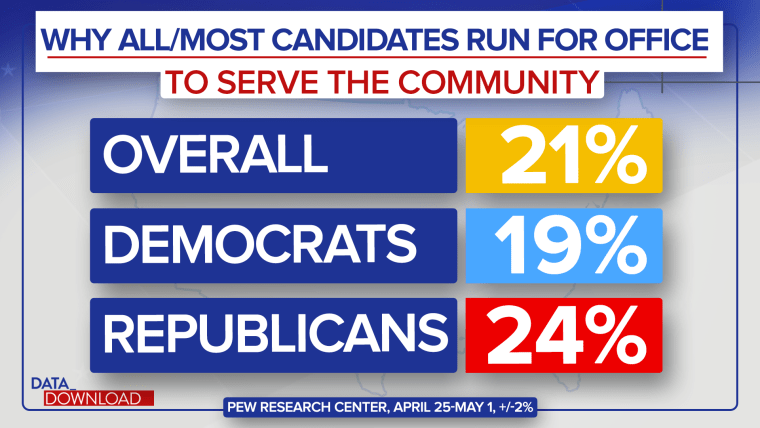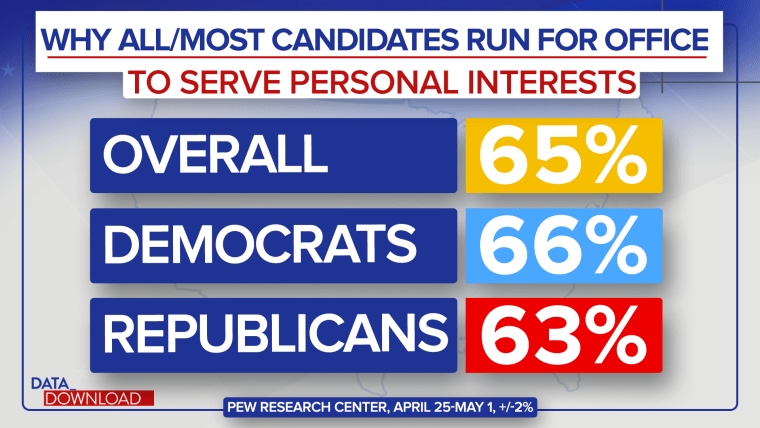WASHINGTON — Poll after poll finds American voters are in a sour mood, believing the country is on the wrong track. But a new survey from the Pew Research Center shows a complicating factor: Voters on the left and right don’t feel very good about Washington’s ability to fix the situation.
Pew has been measuring how Americans feel about Washington’s ability to make the right decisions for years and the general trend since 2000 has not been good.

There was a brief bump up in the public’s trust in government around the turn of the century, following the September 11, 2001 terrorist attacks. In October of 2001, 60 percent of Americans said they trusted government “to do what is right just about always or most of the time.”
That moment of rallying around the flag did not last, however. Since then, the number has largely slid downward until today where the figure is stuck in the basement.
Overall, only 20 percent of those surveyed by Pew in May said they expected government to do the right thing right just about always or most of the time. There’s not a lot of hope in that number.
And one somewhat surprising finding in the Pew data on this question, there was general broad bipartisan agreement on it back in 2001 and now.

In 2001, when the occupant of the White House was Republican George W. Bush, Republicans were more likely to trust the government to do the right thing. Among them 68 percent said they had faith in government to do the right thing just about always or most of the time. The figure was lower for Democrats, at 52 percent, but in modern political that kind of agreement is rare.
And, again, in this latest survey, there is surprising bipartisan agreement on the issue in the negative direction. Even though a Democrat sits in the Oval Office today, just under 30 percent of Democrats trust the government to do the right thing. With Republicans, the figure is an abysmal 9 percent.
When you see trust numbers that low, the first question is why? Or what happened? And the Pew survey offers plenty of possible answers. The poll shows that 60 percent of Americans think the federal government unfairly benefits some people over others and 60 percent of Americans feel “frustrated” toward the federal government. The survey also shows a decline in the confidence in civil servants (career employees) in recent years.
But you can see the real disdain in the data when you look at those who run for office, the elected representatives of the people. Those surveyed do not believe elected officials run for office to serve the community.

Overall, only 21 percent of those surveyed say that elected officials run for office mostly or entirely to serve the community. The number is slightly lower for Democrats, 19 percent, and slightly higher for Republicans, 24 percent, but, on the whole, there is a great deal of partisan agreement on that point.
In the eyes of those surveyed, the real reason candidates run for office is more crass — simple self-interest.

Two-thirds of those surveyed said they believe those who run for office do so because they want to serve their own personal interests and that number was largely the same for the entirety of those surveyed as well as Democrats and Republicans. Again, in the politically divided world of 2022, those figures show an astonishing amount of partisan agreement.
That’s a remarkably tough, cynical landscape for this year’s midterms. Democratic and Republican voters, who struggle to find a middle ground on much of anything have decided they can agree that a) Washington doesn’t make good decisions and b) the people they are electing to fix the mess care more about themselves than the constituents they serve.
It’s probably not entirely that simple. It may that when you push voters to talk about their specific representatives they feel better about them. Polling has long shown a strong bias toward the idea that “there are a lot of bad people in Washington, but my representative is one of the good ones.”
But when there is this much bipartisan distrust toward Washington, it’s hard to feel good about November’s election — or the swearing in of the new Congress next year. Numbers like these suggest Americans see a deeply broken system in Washington and changing control of Congress or adding a few new fresh faces on the Hill seems unlikely to change that sentiment.